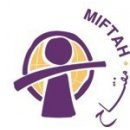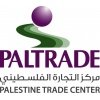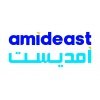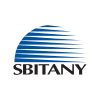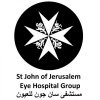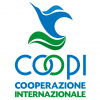Request for Applications - Final Evaluation of the EU Funded...
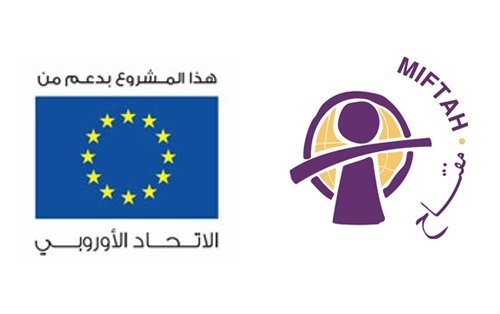
Request for Applications
Final Evaluation of the EU Funded Project
ENI/2018/395-143 Youth as Human Rights Defenders
August 2021
- Background and Introduction:
The Palestinian Initiative for the Promotion of Global Dialogue and Democracy-MIFTAH, is a non-governmental, non-partisan institution that was established in Jerusalem in December 1998. MIFTAH seeks to promote the principles of democracy and good governance within various components of the Palestinian society; it further seeks to engage local and international public opinion and official circles on the Palestinian cause. To that end, MIFTAH adopts the mechanisms of an active and in-depth dialogue, the free flow of information and ideas, as well as local and international networking.
MIFTAH implemented the EU-funded project “Youth as Human Rights Defenders” from 1 March 2018 until 31 July 2021. The overall objective of this project is to enhance implementation of human rights instruments, mainly the International Covenant on Civil and Political Rights (ICCPR) in five localities in the oPt within three and a half years; Jerusalem, Old City of Hebron and Access Restricted Areas in Gaza. This objective came within the framework of limited implementation of human rights instruments, particularly in area "C" where ambiguity prevails in concern to the responsible parties to upholding human rights standards. This compromises on protection of citizens and enjoyment of basic rights and fundamental freedoms within these areas. The implementation of human rights instruments was envisioned to take place through enabling youth within the target vulnerable locations to provide evidence of human rights violations efficiently and effectively. These collected data were used in advocacy efforts towards promotion of and demand for redress, particularly within the framework of the ICCPR. Within this context, the designed project proceeded in two pathways; the first focusing on enabling youth community activists to monitor and report on human rights violations as Young Human Rights Defenders (YHRDs), and the second focusing on promoting policy formulation to enhance protection of basic human rights and fundamental freedoms. This was done through developing two analytical research reports to shed light on the gaps of the implementation of human rights instruments within the Palestinian context with special focus on the targeted marginalized localities, followed by advocacy efforts aimed at rectifying policies that will ensure protection for these communities.
The target groups of the project included five groups of Palestinian youth (males and females) as human rights defenders living in the H2 area of the Old City of Hebron (1 group), east Jerusalem (2 groups) and access restricted areas in Gaza (2 groups). The YHRDs were supported and hosted in five local organizations in the targeted localities.
- Evaluation Objectives:
MIFTAH is looking for a consultant to conduct the final external evaluation for this project to assess whether its objectives and targeted results have been achieved. The evaluation will focus on the relevance, effectiveness, efficiency impact and sustainability of the project. More specifically, the evaluation will provide the following:
- Assessment of the design, implementation process and achievements of the project
- Assessment of the management and coordination of the project
- Documentation of lessons learnt in terms of methodology and project implementation.
- Assessment of the completed activities and how they are related to the objectives of the project.
- Provide suggestions, conclusions, and recommendations for future actions.
- Evaluation Outputs:
Outputs to be delivered by the evaluator are as follows:
- A concise and comprehensive evaluation report in English providing answers to questions specified in section 4
- Conclusions and recommendations, based on a complete analysis of the project’s implementation, results and impact
- A presentation of the draft evaluation results to MIFTAH, including the European commission delegation in Jerusalem
- Evaluation Questions:
Through the final external evaluation, MIFTAH seeks to evaluate/assess the project, answering, among others, the following questions:
Relevance: The extent to which the objectives of the project are consistent with the needs in the project document and those of the stakeholders.
The analysis of relevance should focus on the following questions related to the project design:
- The extent to which stated objectives correctly address the identified problems and needs of the targeted locations.
- The quality of key stakeholder and target group identification (YHRDs and host organizations).
Effectiveness: How far the project’s outcomes were attained and the project’s specific objective(s) achieved.
The analysis of effectiveness should focus on the following issues:
- The extent to which the results of the project have been achieved, as perceived by all key stakeholders and with reference to the agreed outcome indicators and other relevant information.
- The effectiveness of operational procedures and whether these are in line with the project’s needs;
- Effectiveness of host organizations. Was the role of the host organizations beneficial towards the YHRDs and to the objectives of this intervention? Did they add value to the project?
Efficiency: How well the various activities transformed the available resources into the intended outcomes/outputs, in terms of quantity, quality and timeliness. Comparison should be made against what was planned in the approved proposal and implementation plan.
The assessment of efficiency will therefore focus on:
- The quality of day-to-day management in:
- Operational work planning and implementation (input delivery, activity management, delivery of outputs and respect of deadlines);
- Whether management of risk has been adequate, i.e. whether flexibility has been demonstrated in response to changes in circumstances; The degree of flexibility and adaptability of MIFTAH and host organizations to facilitate rapid responses to changes in circumstances.
- Did the coordination and synergy between MIFTAH and host organizations contribute to achieving results?
Impact: The evaluator will determine which impact (positive/negative) was achieved in by the stakeholders on advancing human rights in the targeted locations.
The assessment of impact will therefore focus on:
- What were the sustainable results of the project?
- What was the impact of the project on the human rights situation in the targeted locations, YHRDs, and host organizations?
- Are there unintended impacts?
- What were the main project challenges and what kind of mechanisms were used to overcome them?
- Are there any gaps that the project has left that would need to be filled in with future interventions?
- Evaluation Methodology:
The evaluation will be carried out using the participatory approach, seeking the views and assessments of all the parties, including the YHRDs and the host organizations that were part of the project, stakeholders, project participants. This includes interviews with MIFTAH team in Ramallah.
Thus, the evaluation should comprise the following:
- Review all the project documents, including the proposal, progress reports, meetings’ reports, and the evaluation reports of trainings, among others.
- Review project publications.
- Conduct field visits and interviews with YHRDs and host organizations in West Bank and Gaza.
- Conduct individual interviews with selected YHRDs to come up with success stories.
- Analysis and Assessment:
The detailed evaluation of the project should be guided by the data and information gathered from project sources, internal information from project partners and key stakeholders. The evaluator must support findings and recommendations by an explanation of the degree to which these are based on opinion, analysis and objectively verifiable evidence. Where opinion is the main source, the degree of consensus and the steps taken to test the opinion should be given.
- Evaluation Team:
The evaluator or a team leader should be a specialist in monitoring and evaluation with no prior involvement in the project, with the following qualifications:
- Post graduate degree in human rights, social sciences, development, management or similar field;
- At least 10 years of experience in conducting project evaluations, having evaluated EU projects is a requisite.
- Relevant technical expertise and experience in similar projects, including experience in evaluating community involvement.
- Experience in knowledge management and learning in a non-government organization or similar;
- Good communication skills;
- Excellent analytical and report writing skills;
- Good understanding of human rights situation in West Bank and Gaza Strip;
- Can assemble a team in the West Bank and Gaza; and
- Fluency in English and Arabic.
- Review Period and Timeline:
MIFTAH invites bids from individual consultants or firms in English. Tender should not be received later than Saturday, 14 August 2021 and should include:
- Technical offer that includes the proposed methodology, evaluation plan, team composition and timeframe;
- Financial offer that covers all major anticipated costs in EUR excluding VAT (as the project is VAT exempted).
- Company registration (for firms only) and a valid deduction at source certificate (for firms and individual consultants). In case the latter is not available, 10% income tax will be deducted from the total contract amount.
- A CV detailing relevant skills and experience of the consultant and her/his team of no more than 3 pages, including contactable referees
Tenders should be sent by e- mail to: [email protected]
The evaluation is planned to begin no later than 21 August 2021 and deliverables to be submitted to MIFTAH by 23 September 2021.
To view the Full Tender as PDF EU_YHRDs_FinalEvaluatio_TOR2021_Final.pdf (miftah.org)




